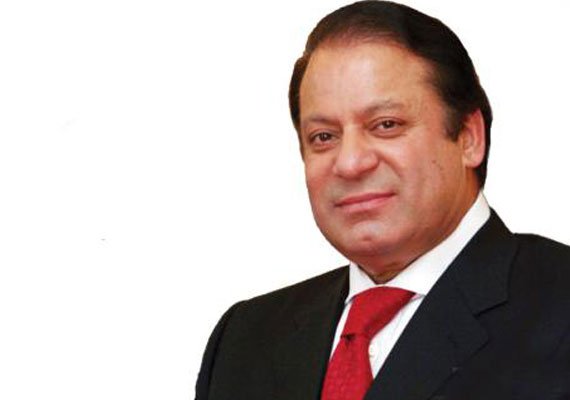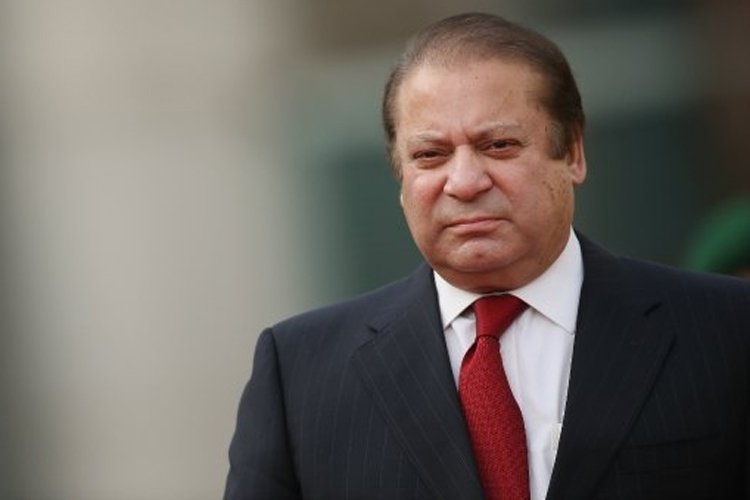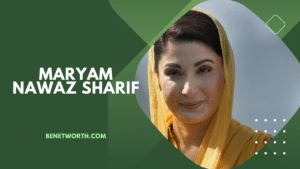Nawaz Sharif is a prominent political figure in Pakistan, known for his stints as Prime Minister. Born on Decem er 25, 1949, in Lahore, Nawaz Sharif has been a key player in Pakistani politics for decades. His family owns a prominent industrial conglomerate and has been involved in politics since the 1930s. Sharif served as Prime Minister of Pakistan on three separate occasions and continues to be a significant figure in the country’s political landscape.
Apart from his political career, Nawaz Sharif has also amassed significant wealth, with an estimated net worth of over $1.4 billion. He is married to Kalsoom Nawaz Sharif, and the couple has three children, including their daughter Maryam Nawaz, who has also played a prominent role in Pakistani politics.
In this article, we will delve into the life and career of Nawaz Sharif net worth, exploring his political achievements, personal life, and the impact of his family on Pakistani politics.
Personal Profile About Nawaz Sharif
Nawaz Sharif is a prominent Pakistani politician, businessman, and former Prime Minister of Pakistan. Born into a family of industrialists, he has been involved in politics since the 1980s and has served as the Prime Minister of Pakistan three times.
| Date of Birth | Dec 25, 1949 | |
|---|---|---|
| Age | 75 Years | |
| Birth Place | Lahore, Pakistan | |
| Residence | Lahore, Pakistan | |
| Country | Pakistan | |
| Profession | Politician | |
| Education | Bachelor of Laws (LLB) degree from the Government College University in Lahore | |
| Father | Muhammad Sharif | |
| Mother | Shamim Akhtar | |
| Nationality | Pakistani | |
| Siblings | Shahbaz Sharif | |
| Brother | Shahbaz Sharif | |
| Spouse | Kulsoom Nawaz | |
| Religion | Islam | |
| Daughter | Maryam Nawaz Sharif | |
| Sons | Hassan Nawaz Sharif, Hussain Nawaz Sharif | |
| Horoscope | Capricorn | |
| Weight | 82 Kg | |
| Height | 5 feet 7 inches | |
| Net Worth | Rs. 1.75 billion (equivalent to Rs. 8.9 billion or US$39 million in 2021) | |
| Ermanent Address | Shamim Farm, Jati Umra, Raiwind Road Lahore. |
Sharif is known for his pro-business policies and efforts to improve Pakistan’s economy. He has been praised for his development projects and criticized for his alleged corruption and lack of action on human rights issues. Sharif has been a controversial figure in Pakistani politics, and his leadership has been marked by periods of instability, including his ousting from office on multiple occasions.
Despite these challenges, he has remained a significant player in Pakistan’s political landscape. In addition to his political career, Sharif has been involved in various business ventures, particularly in the steel industry. His profile is one of wealth and influence, and he has been a polarizing figure in Pakistani society.
Regardless of one’s opinion of him, there is no denying that Nawaz Sharif has left a lasting impact on Pakistan’s political and economic development.
Nawaz Sharif’s Net Worth
Nawaz Sharif, the former Prime Minister of Pakistan, has amassed a considerable fortune throughout his political career. His net worth is estimated at around $1.4 billion, largely thanks to his family’s business empire. The Sharif family’s business interests range from steel and sugar mills to property development, giving them a comprehensive source of income. However, Shar’s wealth has not come without controversy.
| Net Worth Fluctuations | |
|---|---|
| 2023 | $1.8 billion |
| 2022 | $1.6 billion |
| 2021 | $1.4 billion |
| 2020 | $1.2 billion |
| 2019 | $1.1 billion |
| 2018 | $1.0 billion |
He and his family have faced numerous corruption allegations, with Sharif being convicted on corruption charges in 2018. Despite this, he has remained an influential political figure in Pakistan, serving as Prime Minister three times. His financial status has often been debated and scrutinized, with many questioning the sources of his wealth and the ethics of his financial practices.
Nonetheless, his influence within the Pakistani political and business spheres has allowed him to amass significant wealth. Whether his financial success results from legitimate business practices or corrupt activities is a matter of ongoing debate and investigation. As of now, Shif’s net worth continues to be a topic of interest and speculation.
Read also: Top 10 Richest People in the World
PML-N launches Election Manifesto with the Slogan ‘Pakistan ko Nawaz do’ ‘پاکستان کو نواز دو’
PMLN’s Introduced A New Slogan
Mushkil Say Nikalo Nawaz Sharif
Arif Lohar Mian De Naray Jugni Style HD OFFICIAL Full SONG
Some Lesser Known Facts About Nawaz Sharif
Nawaz Sharif, the former Prime Minister of Pakistan, is a prominent political figure, but some lesser-known facts about him often go unnoticed. One interesting fact is that he comes from a family of businessmen, and his family owns one of the largest steel mills in Pakistan.
Another lesser-known aspect of Sharif is his love for poetry. He is known to have a deep appreciation for Urdu poetry and has often quoted verses from famous poets in his speeches. Additionally, Sharif is fluent in English, which is not commonly known among the public. His proficiency in the language has helped him communicate with international leaders and dignitaries, playing a significant role in his political career.
Furthermore, many are not aware that he spent several years in exile, first in Saudi Arabia and then in the United Kingdom, following a military coup in 1999. During his exile, he played an active role in Pakistani politics despite being physically distant.
These lesser-known facts highlight Nawaz Sharif differently, showcasing a more multifaceted individual beyond his political persona.
Nawaz Sharif’s Political Career
Nawaz Sharif’s political career in Pakistan has been tumultuous, marked by remarkable successes and significant setbacks. He first rose to prominence in the 1980s as the Chief Minister of Punjab, the country’s most populous province. Sharif’s leadership in Punjab was marked by his focus on economic development and infrastructure projects, earning him a reputation as a pragmatic and visionary leader.
In 1990, he was elected as the Prime Minister of Pakistan for the first time. During his tenure, he implemented several economic reforms and infrastructure projects, although allegations of corruption and authoritarianism also marred his government.
Sharif was deposed in a military coup in 1999 and subsequently went into exile. Still, he made a dramatic comeback in 2013 when his party, the Pakistan Muslim League-Nawaz (PML-N), won the general elections and became Prime Minister for the third time. Once again, h s tenure was marked by economic growth and development, but it was also marred by allegations of corruption and disqualification from holding public office.
2017 Sharif was ousted from office and later convicted of corruption, leading to his political disqualification. Despite these legal and political challenges, Sharif remains a popular and influential figure in Pakistani politics, with a dedicated base of supporters who see him as a champion of democracy and economic progress. His political career has been characterized by a complex blend of economic reforms, infrastructure development, and corruption scandals, and his legacy continues to be a subject of intense debate and scrutiny in Pakistan.
Nawaz Sharif Wealth and Properties
Nawaz Sharif, a prominent Pakistani politician, has been at the center of controversy surrounding his wealth and properties. The Panama Papers scandal 2016 revealed that Sharif and his family had accumulated significant wealth and assets, including luxurious properties abroad. The leaked documents exposed offshore companies and investments linked to Sharif’s family, casting doubts on the origins of their wealth.
In 2018, Sharif was found guilty of corruption and sentenced to ten years in prison, stemming from the ownership of luxury London properties that were allegedly purchased with embezzled funds. The case drew widespread attention and raised concerns about using political power for personal gain. Despite facing legal battles and imprisonment, Sharif’s wealth and properties have remained a point of contention in Pakistani politics.
His exile and subsequent return to Pakistan have only added to the debates surrounding his financial activities. Critics argue that Sharif’s lavish lifestyle and overseas properties stand in stark contrast to the economic hardships faced by many Pakistanis, highlighting issues of inequality and corruption within the country’s leadership.
On the other hand, Sharif’s supporters defend his wealth due to legitimate business dealings and investments. The controversy surrounding his wealth and properties shapes public perceptions of Sharif and his political legacy. The case has also spurred conversations about the need for greater transparency and accountability in the financial affairs of public officials.
As the ongoing saga of Nawaz Sharif’s wealth and properties unfolds, it is a stark reminder of the complex intersection between politics, power, and personal wealth in Pakistan.
Challenges and Controversies
Nawaz Sharif, the former Prime Minister of Pakistan, has had his fair share of challenges and controversies throughout his political career. One of his biggest challenges was his removal from office on corruption charges in 2017. This led to widespread protests and clashes between his supporters and the government, further deepening the political divide in the country.
Sharif has also been involved in numerous controversies, including allegations of money laundering, tax evasion, and amassing wealth through illegal means. His family’s offshore accounts and properties were scrutinized, leading to the Panama Papers scandal 2016, which exposed the global elite’s secretive financial dealings. The controversy surrounding Sharif and his family’s wealth tarnished his reputation and led to calls for his resignation.
In addition, Sharif’s confrontations with the military and judiciary have also added to the political turmoil in Pakistan. His attempts to assert civilian authority and challenge the military’s influence have resulted in tense standoffs and power struggles. Sharif’s defense of the establishment has made him a polarizing figure, with supporters hailing him as a champion of democracy while detractors accuse him of corruption and authoritarian tendencies.
Despite the challenges and controversies, Sharif has remained a formidable force in Pakistani politics, leading his party, the Pakistan Muslim League-Nawaz (PML-N), and rallying his supporters to maintain his influence. However, his legal battles and confrontations with the authorities continue to cast a shadow over his political future, leaving him in a precarious position as he navigates the turbulent waters of Pakistani politics.
Nawaz Sharif Son
Nawaz Sharif’s son, Hussain Nawaz, is influential in Pakistani politics. Born in 1978, he is the eldest son of the former Prime Minister of Pakistan. Hussain has been involved in various business ventures, including real estate development and the family’s steel business.
He has also been at the center of controversy, facing corruption and money laundering allegations. In 2017, Huss was implicated in the Panama Papers scandal, which revealed offshore accounts and assets owned by his family.
Despite the legal battles and controversies, he remains a prominent figure in Pakistani politics and active in his family’s business interests. Hussain’s ties to his father’s political legacy have kept him in the public eye, and his actions continue to be closely scrutinized by his supporters and detractors.
Nawaz Sharif Daughter
Maryam Nawaz is the daughter of Pakistan’s former Prime Minister Nawaz Sharif. She is a prominent political figure in Pakistan and has been involved in various political controversies. Maryam has been an active member of her father’s party, the Pakistan Muslim League-Nawaz (PML-N), and has held significant positions.
She has been seen as a potential successor to her father, and in recent years, she has become more vocal in her criticism of the current government. Maryam has been at the center of several legal and political battles, including being convicted and sentenced to prison on corruption charges. Despite adversity, she continues to be a powerful and influential figure in Pakistani politics.
Maryam Nawaz’s involvement and influence in Pakistan’s political landscape have solidified her as a significant player in the country’s political arena. Her political role is a source of admiration and criticism, making her a controversial and polarizing figure in Pakistani society.
Nawaz Sharif Brother
Nawaz Sharif’s brother, Shehbaz Sharif, is a prominent Pakistani politician who has served multiple times as Chief Minister of Punjab province multipin Lahor. In 1951, Shehbaz attended Government College University and later pursued a degree in law from the University of the Punjab.
He began his political career in the 1980s and quickly rose through the Pakistan Muslim League (N) party ranks, eventually becoming its president. Shehbaz has been credited with various developmental projects in Punjab, including infrastructure improvements, healthcare reforms, and educational initiatives. His leadership has been praised for its focus on progress and modernization in the province.
However, Shehbaz has also faced controversy and allegations of corruption during his tenure and has had to navigate the complex political landscape of Pakistan. Despite these challenges, he remains a crucial figure in Pakistani politics and a close ally of his brother, Nawaz Sharif. Known for his strong leadership and administrative skills, Shehbaz Sharif plays a significant role in shaping Pakistan’s political landscape and remains a prominent figure in the country’s political sphere.
Early Life and Education
Nawaz Sharif was born in Lahore, Pakistan on December 25, 1949. He was taken to a wealthy industrialist family and received a privileged education throughout his early years. After schooling in Lahore, he studied at the Government College University, where he earned his undergraduate degree.
After completing his undergraduate studies, he pursued his law degree at the University of Punjab and eventually joined the bar in 1977. Sharif’s early life was centered around his family’s steel and sugar businesses, but he quickly became involved in politics, joining the Pakistan Muslim League in 1976.
His ambitious nature and business background helped him rise through the party ranks, and he was appointed Chief Minister of Punjab in 1985. His early experiences in business and education laid a strong foundation for his future career in politics, shaping his economic policies and leadership style. This solid educational background and early business experience would serve him well as he rose to become the Prime Minister of Pakistan three times.
Provincial Politics
Nawaz Sharif is a prominent Pakistani politician who has significantly impacted provincial politics in Punjab. Born into a wealthy industrialist family, Sharif has amassed a substantial net worth. His business ventures, including his family’s steel business, have contributed to his estimated net worth of around $1.4 billion.
Sharif’s involvement in provincial politics has been instrumental in shaping Punjab’s political landscape. As a founding member of the Pakistan Muslim League (Nawaz), he has served as the Chief Minister of Punjab on two separate occasions, further solidifying his influence in the region. His policies and initiatives have focused on the development and growth of Punjab, making him a key figure in the province’s political and economic development.
Despite various legal and political challenges, Sharif’s net worth and influence have remained relatively stable. His ability to navigate and adapt to Pakistan’s rapidly changing politics has made him an influential figure in provincial politics. Nawa Sharif’s substantial net worth and impact on Punjabi local politics have solidified his status as a prominent and influential figure in Pakistan’s political landscape.
Early Political Career
Nawaz Sharif’s early political career began in the 1980s when he joined the Punjab Provincial Cabinet as the Minister of Finance. His rise to power quickly gained momentum as he was promoted to Chief Minister of Punjab in 1985. During his tenure, he focused on economic development and initiated several infrastructure projects in the province.
In 1990, he became the Prime Minister of Pakistan for the first time, leading the conservative Pakistan Muslim League (N). His time in office was marked by efforts to strengthen the country’s economy, leading to significant growth and development. However, his government was dismissed in 1993 following a power struggle with then-President Ghulam Ishaq Khan.
Sharif returned to power in 1997, serving as Prime Minister for a second term. During this period, he focused on privatization of state-owned enterprises and infrastructure development. He also initiated a nuclear testing program, which was met with both praise and condemnation from the international community.
Despite his successes, his government was overthrown in a military coup led by General Pervez Musharraf in 1999. Sharif’s early political career was filled with accomplishments and challenges, setting the stage for his continued involvement in Pakistani politics for years to come.
Nawaz Sharif, As Chief Minister of Punjab
Nawaz Sharif served as the Chief Minister of Punjab from April 1985 to May 1988. He implemented several development projects and policies to improve the province’s infrastructure during his tenure. He economized the agriculture and industrial sectors, aiming to boost the production and export of goods. Sharif also worked on enhancing Punjab’s education and healthcare systems, prioritizing improving the people’s standard of living. He initiated projects to improve the road and transportation networks, making it easier for people and goods to move within the province.
Sharif’s leadership as Chief Minister was marked by his emphasis on good governance and economic development. He also advocated for decentralization and local government empowerment, believing that local authorities should have more autonomy and resources to effectively address their communities’ needs.
His efforts in Punjab laid the foundation for his later political career, as he became the Prime Minister of Pakistan multiple times. Sharif’s legacy as Chief Minister of Punjab is remembered for his focus on development and governance, setting the stage for his future leadership at the national level.
Nawaz Sharif Parliamentary Opposition (1993–1996)
Nawaz Sharif served as the Parliamentary opposition leader from 1993 to 1996, following his dismissal as Prime Minister by the then President, Ghulam Ishaq Khan. Despite facing political challenges and backlash, Sharif became a prominent figure in the opposition, actively voicing his concerns and criticisms of the government’s policies and decisions.
Sharif’s tenure as the opposition leader was characterized by his relentless efforts to hold the government accountable and advocate for the people’s rights and interests. His firm stance against the government’s economic, social, and foreign policies earned him a reputation as a formidable opponent in the political arena.
During this time, Sharif’s Pakistan Muslim League (PML) party garnered significant support from the public, further solidifying his position as a leading figure in Pakistani politics. Sharif’s leadership and vocal opposition to the government’s actions also played a pivotal role in shaping the country’s political landscape.
Despite facing various challenges and obstacles, Sharif remained steadfast in his commitment to representing the people’s interests and upholding democratic values. His tenure as the Parliamentary opposition leader laid the groundwork for his eventual return to power as Prime Minister, solidifying his enduring influence in Pakistani politics.
Second Term as Prime Minister (1997–1999)
Both accomplishments and controversies marked Nawaz Sharif’s second term as prime minister from 1997 to 1999. During this time, Sharif introduced several economic and social reforms, including a privatization program to improve the country’s economy.
He also worked to improve relations with India, and in 1999, signed the Lahore Declaration with Indian Prime Minister Atal Bihari Vajpayee to reduce tensions between the two nuclear-armed neighbors. However, Shar’s second term was also marred by allegations of corruption and mismanagement.
His decision to dismiss Chief of Army Staff General Pervez Musharraf in 1999 led to a standoff between the military and the government, ultimately resulting in a military coup that ousted Sharif from power. This marked the end of his second term as prime minister and led to a period of exile for Sharif.
Despite his accomplishments in improving the economy and relations with India, the controversies surrounding his rule during this time ultimately overshadowed his achievements. Sharif’s second term as prime minister remains contentious in Pakistan’s political history, with supporters and critics weighing in on his legacy.
Third Term as Prime Minister (2013–2017)
Nawaz Sharif’s third term as prime minister of Pakistan, which lasted from 2013 to 2017, was marked by significant achievements and controversies. Sharif and his government focused on infrastructure development, energy projects, and economic reforms.
The China-Pakistan Economic Corridor (CPEC) was launched during this time, which aimed to improve Pakistan’s infrastructure and strengthen its economy through various projects and investments. Sharif also tried to improve relations with India and Afghanistan, including attempts to resolve the long-standing Kashmir conflict.
However, his tenure was also marred by allegations of corruption and mismanagement. In 2016, a massive leak of documents known as the Panama Papers revealed that Sharif and his family had offshore accounts and properties, leading to widespread protests and calls for his resignation.
In 2017, Sharif was disqualified by the Supreme Court of Pakistan on corruption charges and was forced to resign. Despite the controversies, Sharif’s supporters credit him for initiating several development projects and improving infrastructure during his office. Shar’s third term as prime minister was a mix of accomplishments and challenges, impacting Pakistan’s political landscape.
Nawaz Sharif’s Eponymous Entities
Nawaz Sharif, a prominent political figure in Pakistan, has had several eponymous entities named after him. These entities include educational institutions, roads, and a metro bus service. One of the most notable entities named after him is the Nawaz Sharif Park, a public park in Punjab. The park is a recreational space for locals and features lush greenery, playgrounds, and walking tracks.
Another significant eponymous entity is the Nawaz Sharif Medical College, a well-known educational institution in Punjab that offers medical courses and training. Additionally, there are roads and highways named after Nawaz Sharif, symbolizing his influence and political significance in the country.
The Metro Bus service in Lahore, known as the “Nawaz Sharif Metro Bus Service,” is another central eponymous entity associated with the former Prime Minister. These entities testify to Nawaz Sharif’s impact on the country and his enduring legacy in Pakistani politics.
Whether through educational institutions, public parks, or transport services, the eponymous entities named after Nawaz Sharif continue to commemorate his role in shaping the development and infrastructure of the nation. Despite his controversial political career, these entities reflect the enduring influence and significance of his contributions to Pakistan.
2016 Panama Papers Leak
In 2016, a massive leak of financial documents known as the Panama Papers revealed that several world leaders and influential individuals had been using offshore accounts to conceal their wealth. Among those I plicated in the leak was Nawaz Sharif, the Prime Minister of Pakistan at the time. The documents showed that Sharif’s children owned expensive properties in London through offshore companies, leading to corruption and money laundering allegations.
The leak sparked outrage and protests in Pakistan, with many calling for Sharif’s resignation. The Supreme Court of Pakistan took notice of the revelations and launched an investigation into the Prime Minister’s family’s wealth. In July 2017, the Supreme Court found Sharif guilty of dishonesty and declared him unfit to hold office. Sharif was ultimately disqualified and forced to step down as Prime Minister.
The Panama Papers leak had far-reaching consequences in Pakistan, leading to a significant political upheaval and the end of Sharif’s tenure as Prime Minister. The case also brought the issue of offshore wealth and financial transparency into the spotlight, prompting global discussions about the ethics of wealth concealment and the need for greater accountability among world leaders.
Nawaz Sharif Wealth and Conglomerates
Nawaz Sharif, the former Prime Minister of Pakistan, has been embroiled in controversy over his immense wealth and business conglomerates. His family’s health is allegedly stashed away in various offshore accounts and companies, sparking outcry and allegations of corruption.
The Panama Papers leak in 2016 revealed that three of Sharif’s children owned offshore companies, leading to a Supreme Court investigation and disqualification from office. Sharif and his family have been accused of amassing massive wealth through corrupt practices and embezzlement of public funds while neglecting the country’s economic development. Their businesses, including steel, sugar, and paper mills, have faced scrutiny for alleged tax evasion and questionable financial dealings.
The Sharif family’s empire has been described as a symbol of crony capitalism, with close ties to the military and a history of using political power to expand their business interests. Despite facing numerous legal battles and investigations, Sharif still maintains a significant influence and support base in Pakistani politics.
His wealth and business conglomerates continue to be a source of contention and public outrage, highlighting the pervasive issue of corruption and inequality in the country. The ongoing scrutiny of Sharif’s wealth and conglomerates serves as a reminder of the need for transparency and accountability in politics and business and the importance of combating corruption to ensure the equitable distribution of resources and opportunities for all citizens.
Nawaz Sharif’s Business Career and Entry into Politics
Nawaz Sharif, a Pakistani politician and businessman, first entered the world of business in the 1970s after completing his education in law and politics. He and his family established the Ittefaq Group, one of Pakistan’s largest steel-making and sugar mills.
His business success helped him amass significant wealth and influence in the country. In the 1980s, Sharif decided to transition into politics and became involved with the conservative Pakistan Muslim League (PML).
He quickly rose through the party ranks, and in 1990, he was elected as the Prime Minister of Pakistan for the first time. His leadership was marked by economic liberalization and privatization policies, further expanding his influence in the business world.
However, Sharif’s political career has been marked by controversy, including allegations of corruption and abuse of power. Despite facing multiple periods of exile and imprisonment, Sharif has remained a prominent figure in Pakistani politics, serving as Prime Minister for three non-consecutive terms.
While he has faced criticism and legal troubles, Sharif’s business acumen and entry into politics have significantly impacted Pakistan’s political and economic landscape.
Corruption Allegations, Prosecution, and Exile
Nawaz Sharif, the former Prime Minister of Pakistan, has faced numerous corruption allegations throughout his political career. In July 2017, the Supreme Court of Pakistan disqualified Sharif from holding public office and ordered a corruption investigation into his family’s wealth after the leaked Panama Papers revealed their offshore accounts.
In December 2018, Sharif was sentenced to seven years in prison on corruption charges related to the ownership of luxurious apartments in London. He maintained his innocence and claimed that the charges were politically motivated. In 2019, Shar F was granted bail on medical grounds and received permission to seek medical treatment abroad.
However, there was speculation that his release was part of a deal with the military, as tensions between him and the army had escalated. Later that year, he left for London, where he has been in self-imposed exile ever since. The government of Pakistan accused him of evading justice and demanded his return, but Sharif has remained abroad, citing his deteriorating health as the reason for not returning. Despite the corruption allegations and legal battles, Sharif’s political party, the Pakistan Muslim League-Nawaz (PML-N), significantly influence Pakistani politics.
His daughter, Maryam Nawaz, has emerged as a vocal critic of the current government and has rallied support for her father from his loyal followers. The saga of Nawaz Sharif’s corruption allegations, prosecution, and exile continues to captivate the Pakistani public and has far-reaching implications for the country’s political landscape.
Nawaz Sharif Wiki Biography
Nawaz Sharif is a prominent Pakistani politician who has served as Pakistan’s prime minister three times. He was born on December 25, 1949, in Lahore, Pakistan. Sharif comes from a wealthy industrialist family and studied business at Government College University.
He was initially involved in the family’s steel business before entering politics. In 1981, he was appointed Minister of Finance for the province of Punjab. Sharif first became Prime Minister in 1990 and then again in 1997, but both times, his tenures were cut short due to political turmoil and military intervention. He returned to power for a third time in 2013, and his government oversaw economic growth and infrastructure development.
However, his tenure was again marred by allegations of corruption and mismanagement. In 2017, Shar F was disqualified from office by the Supreme Court of Pakistan over corruption charges, and he was subsequently sentenced to prison.
He was released on bail in 2018 for medical treatment and has since lived in London. Despite his c controversial political career, Sharif remains an influential figure in Pakistani politics and the founder of the political party Pakistan Muslim League (N). His legacy is one of economic progress and political instability, and he continues to be a polarizing figure in Pakistani society.
Sharif’s personal life has also been the subject of public scrutiny, particularly his family’s wealth and business dealings. His biography is the subject of much debate and analysis in Pakistan and beyond.
Nawaz Sharif’s Social Media Accounts
Nawaz Sharif, the former Prime Minister of Pakistan, has a significant presence on social media with official accounts on platforms like Twitter and Facebook. With over 4 million followers on Twitter and nearly 12 million likes on Facebook, Sharif uses his social media pages to share his political views, communicate with his supporters, and stay connected with the public.
His posts often revolve around political developments in Pakistan and his opinions on various national and international issues. Sharif’s social media accounts also serve as a platform for him to engage in discussions and debates with his followers and to address any controversies that may arise. Despite facing legal and political challenges, his active presence on social media allows him to maintain a direct communication channel with the public, enabling him to voice his opinions and highlight his achievements as a political leader.
However, his social media presence has also been criticized and controversial, with some accusing him of using the platforms to manipulate public opinion and push a specific political agenda. Despite these criticisms, Nawaz Sharif’s social media accounts significantly shape public perceptions and maintain his influence in Pakistan’s political landscape.
FAQs | Nawaz Sharif Net Worth
Who are the daughters of Nawaz Sharif?
Nawaz Sharif has two prominent daughters, Maryam Nawaz and Asma Nawaz, who have been actively involved in Pakistani politics.
Who is the wife of Nawaz Sharif?
The wife of Nawaz Sharif is Kalsoom Nawaz Sharif, a prominent political figure in her own right and a respected member of the Sharif family.
Who are the sons of Nawaz Sharif?
Nawaz Sharif has two well-known sons, Hussain Nawaz and Hassan Nawaz, who have been associated with the family’s business and political activities.
What is the age of Nawaz Sharif?
Nawaz Sharif was born on December 25, 1949, which means he is currently 75 years old. As a prominent Pakistani politician, Sharif has been a critical figure in the country’s political landscape for decades. He has served as Prime Minister of Pakistan three times, and his influence in the country’s politics continues to be significant.
What is Nawaz Sharif’s family background?
Nawaz Sharif is from a prominent political family in Pakistan. His father, M. Hammad Sharif, was a prominent businessman and a member of the Punjab Legislative Assembly. His family has been involved in politics and business for generations, with a strong influence on the political landscape of Pakistan.
Can you provide a brief biography of Nawaz Sharif?
Nawaz Sharif is a Pakistani politician who served as Pakistan’s prime minister for three non-consecutive terms. He was born on December 25, 1949, in Lahore, Pakistan. He studied law at the University of Punjab and started his political career in the 1980s. Sharif rose to power as the Chief Minister of Punjab and later became the Prime Minister of Pakistan in 1990. He faced controversies and legal issues throughout his career, including being removed from office in 1993 and 1999. Despite these challenges, he remains influential and prominent in Pakistani politics.
What were some notable political positions held by Nawaz Sharif?
In the past, Nawaz Sharif served as the Prime Minister of Pakistan, the Chief Minister of Punjab, and the Finance Minister, demonstrating his significant influence in Pakistani politics.
What are some of Nawaz Sharif’s key affiliations and political involvement?
Nawaz Sharif has been proudly affiliated with the Pakistan Muslim League (PML-N) and has served as the Prime Minister of Pakistan three times. He has also been actively involved in the country’s political landscape, participating in various political movements and organizations. Sharif’s tenure has been characterized by strong ties with conservative and right-leaning factions, and he has implemented policies and initiatives geared toward economic liberalization and social reform.
His political involvement has also led to controversies, including several legal battles and periods of exile. Despite this, Sharif remains a prominent figure in Pakistani politics with a dedicated support base.
What is the age of Nawaz Sharif?
Nawaz Sharif’s age is 75 years, his date of birth is December 25, 1949, his astrological sign is Capricorn, his place of birth is Lahore, Pakistan, and his nationality is Pakistani. His Nawaz Sha if, the former Prime Minister of Pakistan, is 71.
He was born on December 25, 1949, and has had a long and influential political career in Pakistan. Despite numerous controversies and legal battles, Sharif remains a prominent figure in Pakistani politics—Residence Lah re, Pakistan.
How old is Nawaz Sharif?
Nawaz Sharif, born on December 25, 1949, is currently 75 years old.
What is the Profession of Nawaz Sharif?
Nawaz Sharif is a Pakistani politician and businessman who served as Pakistan’s prime minister three times. He is the Pakistan Muslim League (Nawaz) party leader and one of the most influential and powerful figures in Pakistani politics. Before entering politics, Sharif worked in his family’s steel business and quickly became a successful businessman.
He holds a law degree and has been involved in various business ventures and charitable activities throughout his career. Sharif is known for his strong stance on economic and developmental issues and continues to play a significant role in shaping Pakistan’s political landscape.
Who is Nawaz Sharif’s wife?
Nawaz Sharif’s wife or spouse’s name is Kulsoom Nawaz.
Who is Nawaz Sharif’s Parents?
Nawaz Sharif’s father’s name is Muhammad Sharif, and his mother’s is Shamim Akhtar.
Who are Nawaz Sharif’s siblings?
Nawaz Sharif’s sibling’s name is Shahbaz Sharif.
What is Nawaz Sharif’s net worth?
As of 2021, the estimated net worth of Nawaz Sharif, a Pakistani politician and businessman, is reported to be around $1.6 billion. He has accumulated wealth through various business ventures in the sugar, steel, and transportation industries and his political career, serving as the Prime Minister of Pakistan on three non-consecutive occasions. However, his et worth has been a topic of controversy and scrutiny.
What is Nawaz Sharif’s education?
Nawaz Sharif was educated at St. Anthony’s High School in Lahore, Pakistan. After completing his schooling, he pursued higher education at Government College University, where he obtained a degree in law. His education, background, and legal training would later shape his political career, leading him to become the Prime Minister of Pakistan on three separate occasions.
What is the height of Nawaz Sharif?
Nawaz Sharif’s height is 5 feet 7 inches.
What is the weight of Nawaz Sharif?
Nawaz Sharif weight 82 Kg.
How much does Nawaz Sharif make annually?
Nawaz Sharif’s exact annual income is not publicly disclosed, but as a former Prime Minister of Pakistan and a prominent businessman, it is estimated to be substantial. His family’s businesses and investments also contribute to their overall wealth. However, his financial status has been the subject of much speculation and scrutiny due to legal and political controversies.
Disclaimer: The information is taken from authentic resources and websites. However, Hama iWeb is not responsible for any irrelevant or wrong information. پاکستان کو ن ز دو
















+ There are no comments
Add yours